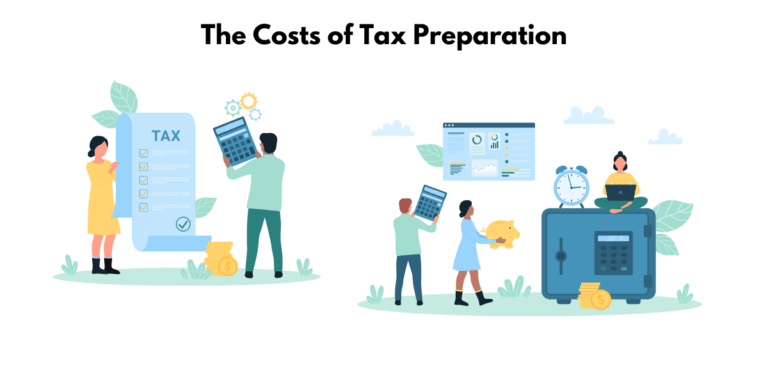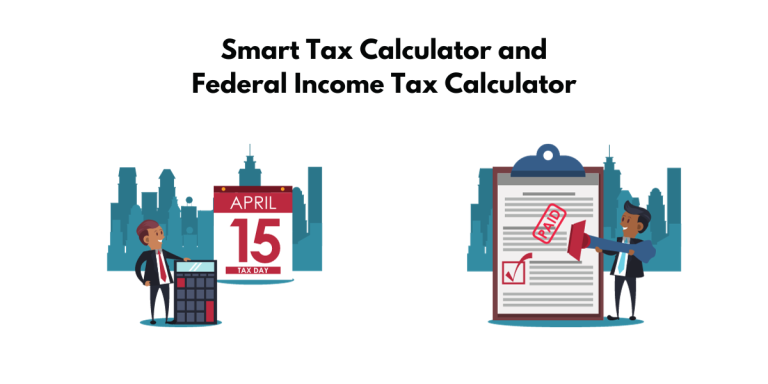10 Things You Need to Know About Tax Day
What is tax day?
Tax day is when individual federal income tax returns are due to be submitted to the federal government in the United States.
It usually falls on April 15th but may be extended in the event of a weekend or public holiday.
How do you know if you need to file a tax return?
Filing a tax return can be daunting for many people in the United States.
Understanding if and when one must file a tax return is important.
Here are some helpful instructions on how to know if you are required to file a tax return:
- Check your filing status: In the United States, most people must file income tax returns if their gross income exceeds certain thresholds set by the Internal Revenue Service (IRS). Generally, if you’re a U.S. citizen or resident alien, you must file a return if you’re unmarried and your gross income is at least $12,200; if you’re married and filing jointly, the threshold is $24,400.
- Check for special requirements: Some groups, such as veterans, pensioners, and low-income families, may not need to file a return unless they want to qualify for certain types of income subsidy. Similarly, if you’re a U.S. citizen or resident alien living and working outside the U.S. and Puerto Rico, you must file a return if you’re unmarried. Your gross income meets the filing threshold, while if you’re a military member on military duty, you must file a return even if your income doesn’t exceed the filing threshold.
- Check your state’s tax filing requirements: Although the IRS sets federal filing requirements, some states also have tax filing requirements. You should check with your state’s tax agency to find out if you need to file a state tax return for the current tax year.
- Consider filing for additional time: If you’re not ready to file your income tax return by the due date, you can apply for an extension by filing Form 4868. This will give you an additional four months to file your return. You may be eligible for an even longer extension if you’re an armed forces member serving in a combat zone.
- Consider filing electronically: You can file your income tax return on paper or electronically. Filing electronically is more efficient and reduces the risk of mistakes or lost documents. The IRS also offers the Free File Program, which allows taxpayers with an adjusted gross income (AGI) of $72,000 or less to prepare and file their taxes online for free.
- Consider paying taxes due: If you owe the IRS money, you can pay online or via electronic funds withdrawal. If you think you will owe taxes for one or multiple previous tax years and have not filed nor paid the taxes due, you should do so as soon as possible to avoid late filing and payment penalty fees.
- Adjust your tax withholding: If you find that you overpaid your taxes last year, you’re due for a tax refund. Similarly, if you’ve underpaid your taxes, you should consider adjusting your withholding or estimated tax payments for the next tax year.
What is the difference between a state and federal tax return?
The primary difference between a state and federal tax return is the entity that collects the taxes.
A federal tax return is filed with the Internal Revenue Service (IRS) of the United States government, while a state tax return is filed with the designated state tax agency.
The filing and payment deadlines for state tax returns can vary from the federal filing deadline, and taxpayers must check with their state tax agency for the most up-to-date information.
Furthermore, taxpayers must ensure that their name is up-to-date with the Social Security Administration, as a mismatch can delay the processing of their returns.

What to consider before filing your taxes
It is important to ensure that all the proper information is collected and the correct forms are filed.
Before beginning the process of filing taxes, there are some key considerations to keep in mind.
1. Tax filing deadlines
Tax filing deadlines are when individuals and businesses must file their income tax returns and make any payments due to the federal and state governments.
Federal taxes are typically due on April 15th, but if that day falls on a weekend or U.S. holiday, the due date is extended to the following business day.
Additionally, the IRS offers an automatic six-month extension to those who cannot meet the deadline, but any taxes owed must still be paid by the original date.
2. State income tax returns
State income tax returns are returns individuals must file with their respective state tax agencies to report income earned within the given tax year.
The filing requirements vary from state to state and may need to be prepared and filed in addition to filing federal returns.
Generally, state income tax returns will include details of any income earned from sources within the state’s jurisdiction and any deductions or credits taken against the taxable income.
Compared to federal income tax returns, state income tax returns are usually more complex and require additional information such as sales and use taxes, property taxes, excise taxes, and income from sources within the state.
State income tax returns must be filed separately from federal returns, and the filing deadlines are not always the same as the federal filing deadline.
Additionally, each state’s income tax rate may differ from the federal rate.
Furthermore, some states may allow deductions that may not appear on federal returns, such as deductions for state taxes paid.
3. Income tax returns
Income tax returns are documents that individuals file with the Internal Revenue Service (IRS) each year to report their income and calculate the taxes they owe.
It is important to file accurate, up-to-date information as the IRS has access to various records, including W-2s, 1099s and banking statements, which they can compare against the information on a person’s tax return.
Filing a return on time and accurately is also important to avoid potential penalties.
Additionally, individuals may qualify for tax credits and deductions if they file a full and accurate return.
For those with an adjusted gross income of $72,000 or less, the IRS offers free tax filing through their Free File Program.
For those who choose to mail in a paper return, it may take six to eight weeks to process.
4. Forms and e-filing
When filing your taxes, various forms are available, depending on your situation.
For individuals, the main forms you will need are Form 1040, Form W-4, and Form 941, among others.
Form W-9 and Form 4506-T are commonly used for businesses and self-employed individuals.
You can find instructions and more information on which forms to use and how to file them on the IRS website.
To e-file your taxes, you must meet certain requirements.
You must have a valid Social Security Number (SSN) or Individual Taxpayer Identification Number (ITIN).
You must also have internet access, a compatible operating system, and a web browser.
Additionally, you must have an up-to-date anti-virus program installed on your computer.
Once you meet these requirements, you can file your taxes electronically via free or paid e-filing options.
E-filing is typically more accurate and secure than filing by paper and can result in a faster refund.

5. Penalties and interest charges
The penalties and interest charges for incorrectly filing taxes can vary depending on the situation.
The IRS may charge late filing, payment, accuracy-related penalties, and interest charges on unpaid balances.
Late filing penalties are generally 5% of the unpaid taxes per month, while late payment penalties are 0.5% of the unpaid taxes per month.
Accuracy-related penalties typically range from 20% to 40% of the underpayment.
In addition, the IRS may charge interest on unpaid taxes, which accrues daily until the balance is paid.
To avoid these penalties and interest charges, eFile.com recommends downloading the respective tax forms for the tax year in question, using the tax calculator and tools for the respective tax year, completing the income tax forms and mailing them to the IRS and state tax agency, and paying as much as you can afford as soon as possible.
According to the IRS, you may also qualify for an online payment plan or an instalment agreement to pay off an outstanding balance over time.
6. Gross income
Gross income is a person’s total before expenses, taxes, or other deductions are removed.
It is important to file taxes because it is a legal requirement, and failure to do so can result in serious financial penalties.
Moreover, by filing taxes, individuals can claim deductions, credits and other tax benefits, which can help reduce the taxes they owe and potentially even result in a tax refund.
Understanding one’s total gross income is essential for filing taxes as it is used to calculate one’s taxable income.
Additionally, certain types of income, such as unemployment compensation or earnings from stock options, dividends and interest, must be included in one’s gross income even if they are not subject to tax.
Therefore, it is important to understand what income needs to be reported on a tax return and include it in one’s total gross income calculation.
7. State tax refund status
Knowing your state tax refund status can help you file taxes by showing when you will receive your refund.
Knowing when you will receive your refund can help you plan your finances and reduce the time you must wait for the money.
Additionally, knowing the deadline for claiming your refund can help you to ensure that you do not miss out on getting the money if you are owed a refund from one or more previous tax years.
Filing federal and state taxes by the deadlines can reduce or eliminate tax penalties and get a quicker refund.
8. Tax payments
Tax payments are money that individuals and businesses pay to the government to support the country’s functioning.
They are either withheld from an individual’s paycheck or paid directly to the IRS as part of their estimated taxes.
Tax payments can have a significant impact on filing taxes.
Taxpayers paying their taxes on time and in full are less likely to incur penalties and interest charges.
Additionally, paying taxes on time can help taxpayers avoid tax liens, which can be damaging to credit scores.
On the other hand, if taxpayers are late to pay taxes, they may incur penalties and interest charges.
Additionally, if taxes are not paid on time, taxpayers can be subject to a tax lien, negatively impacting their credit score.

9. Amended returns
An amended return is a corrected version of your original tax return.
It is used to make changes or corrections to your return after it has already been filed.
You should consider filing an amended return if you discover errors in your original return, need to correct information, or want to claim additional credits or deductions.
In some cases, filing an amended return can help you reduce the taxes you owe or increase the refund you receive.
For example, if you filed your return before the deadline but realized you were eligible for additional credits or deductions, an amended return can help you claim these.
Additionally, find mistakes in your original return, such as incorrect filing status or incorrect amounts.
An amended return can help you correct these errors, get the correct refund, or avoid additional taxes or penalties.
10. Battles over taxes
A tax battle is a dispute between government authorities, taxpayers, and other stakeholders over the interpretation and application of taxes.
This can be due to misunderstandings of tax laws or differences in what is considered taxable.
Tax battles are usually resolved through litigation, negotiation, and compromise.
Sometimes, the taxpayer may be required to pay the disputed taxes, and the government may have to refund or reduce the amount.
Tax battles can affect filing taxes by creating uncertainty about what is taxable or how much a person will owe in taxes.
It may also delay filing taxes as the battle is resolved.
Additionally, it can lead to an increase in the amount of taxes a person must pay or a reduction in the amount of taxes due.
Tax battles are important to address as they can significantly impact a person’s financial situation.
What should I do if I can’t pay my taxes?
If you can’t pay your taxes, taking the necessary steps as soon as possible is essential.
First, download the respective tax forms for the tax year in question.
Then, use the tax calculator and tools for the respective tax year to complete the income tax forms and mail them to the IRS and state tax agency.
Even if you can’t pay your taxes, follow the above steps and pay as little or as much as you can afford.
This will stop the late filing penalties, which are higher than the late payment penalties.
You may qualify for an online payment plan or an instalment agreement that allows you to pay off an outstanding balance over time.
If you already have a payment plan, you may still qualify to use the plan option to revise your existing agreement.
If you can’t finish your return by the deadline, file IRS Form 4868, which will buy most taxpayers until October 15th to file their tax returns.
- Note: A tax extension gets you more time to file your return, not more time to pay your taxes. You still must pay any tax you owe, or a good estimate of that amount, by the tax deadline. Include that payment with your extension request, or you could face a late payment penalty on the taxes due.
If you want to add some additional time to file your return onto your tax calendar, file Form 4868 to obtain four additional months to file.
If you’re an armed forces member serving in a combat zone, you can extend your tax due date further.
- Trusted Tax Solutions Services – Navigate Your Finances With Confidence - August 27, 2024
- 10 Things You Need to Know About Tax Day - October 19, 2021





